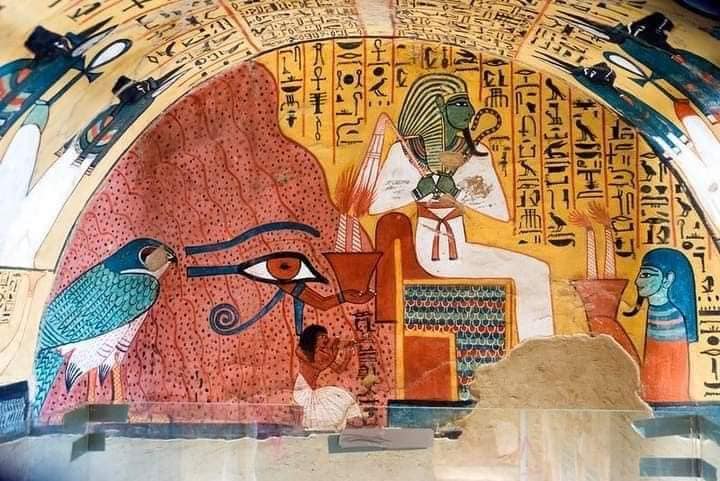Law in Ancient Egypt
The law in ancient Egypt was closely related to religious beliefs and nitro (divine entities), and moral matters were defined in the context of myths, ancient mythology and deities; even myths urged the importance of obedience to the king and the nitro.
Despite the abundance of historical records about some of the crimes and criminals and the penalties that they received, we do not have any codified record of the ancient Egyptian law and system … but through some information, some conclusions can be gathered on how the legal system is implemented in ancient Egypt and how it has evolved Time.
There was also what is known as the ancient Egyptian wisdom literature, which gives us some insight into what was believed to be good and good behaviour during certain periods (although they were not laws, they served as tips and advice)
The earliest recorded legal record comes from Mesopotamia (Iraq) and specifically in Babylon, a set of laws written in the Sumerian language known as the laws of Hammurabi or the most famous Hammurabi Sharia around 1754 BC. It consists of 282 laws and covers social and family laws such as inheritance and divorce and addresses all life problems from punishing the wrongdoer and compensating the offender and defining the duties of individuals and their rights in society according to their responsibilities. These laws are considered to have established the principle and philosophy of “eye for an eye and a tooth for the age” and recorded on an obelisk of black diorite stone with a length of 2.25 A meter and are now displayed at the Louvre Museum in Paris.
Hammurabi’s laws are considered the first law recorded in history and attempted to organize and develop specific rules that discuss every problem. Some consider these laws their penalties are brutal, brutal, and barbaric, but they were, in fact, a great squeeze at the time to take a step on the path of making specific and fixed laws to solve differences between people civilly.
The ancient Egyptian law and order can be placed under the heading of religious teachings, and “Maat”, which represents (truth, justice, the cosmic and social system) is the basis of the Egyptian legal system. Through the ceremony of the weight of the heart, the deceased was judged after the weight of his heart in exchange for the feather of Maat (truth and justice), And check whether the deceased lived honourably during his life.
One way to find out what things the ancient Egyptian community considered wrong or immoral is to read the 42 Laws of the Goat in the form of exiled confessions (I did not lie, I did not kill, I did not commit adultery, I did not steal, I did not pollute the waters of the Nile, I did not commit sins against No one, I did not oppose my family and relatives, I did not cause anyone to starve … etc.)
Since the kings were seen as representatives of the gods on earth, they had privileges in promulgating certain rules and laws. They add or change it to some degree according to the requirements of the times, but and to the extent they had powers to do so, they were adhering to the laws of the gods, including the laws of Maat.
After the king, the minister was responsible for enforcing the law and was given the title (priest Maat). Later on, during the modern state, the judges and senior officials wore necklaces in their necks bearing the image of the nitrifying “Maat.”
In fact, the old Egyptian law and order were not separate from the general administrative system. There was no ad hoc court or a person whose only role was to be a judge … Sometimes, officials who had other administrative positions were assigned legal duties alongside their other work, and in In some important cases, officials participated in an intensive effort, side by side, in investigating some cases and issuing a verdict, as is the case in the trial of the harem plots during the reign of Ramses III.
Given the absence of specific written rules, the system was similar to a common law system where legal decisions are taken case-by-case.
It was recognized that all ancient Egyptians were treated equally in the eyes of the law, and therefore even the rich or the elite were not exempt from the most severe penalties for their crimes.
The ancient Egyptian police have also been assigned a role in maintaining peace and security and arresting criminals.
During the Ptolemaic period, ancient Egyptian law was working alongside ancient Greek law. But when the Romans came, they imposed their laws as the only legal system in the country, and this was tantamount to restricting the role of ancient Egyptian women in particular to what they knew about their role in previous eras in the liberation and advancement of the country, and so when Roman law became the only law, those rights that they enjoyed It had finished.


Comment (0)